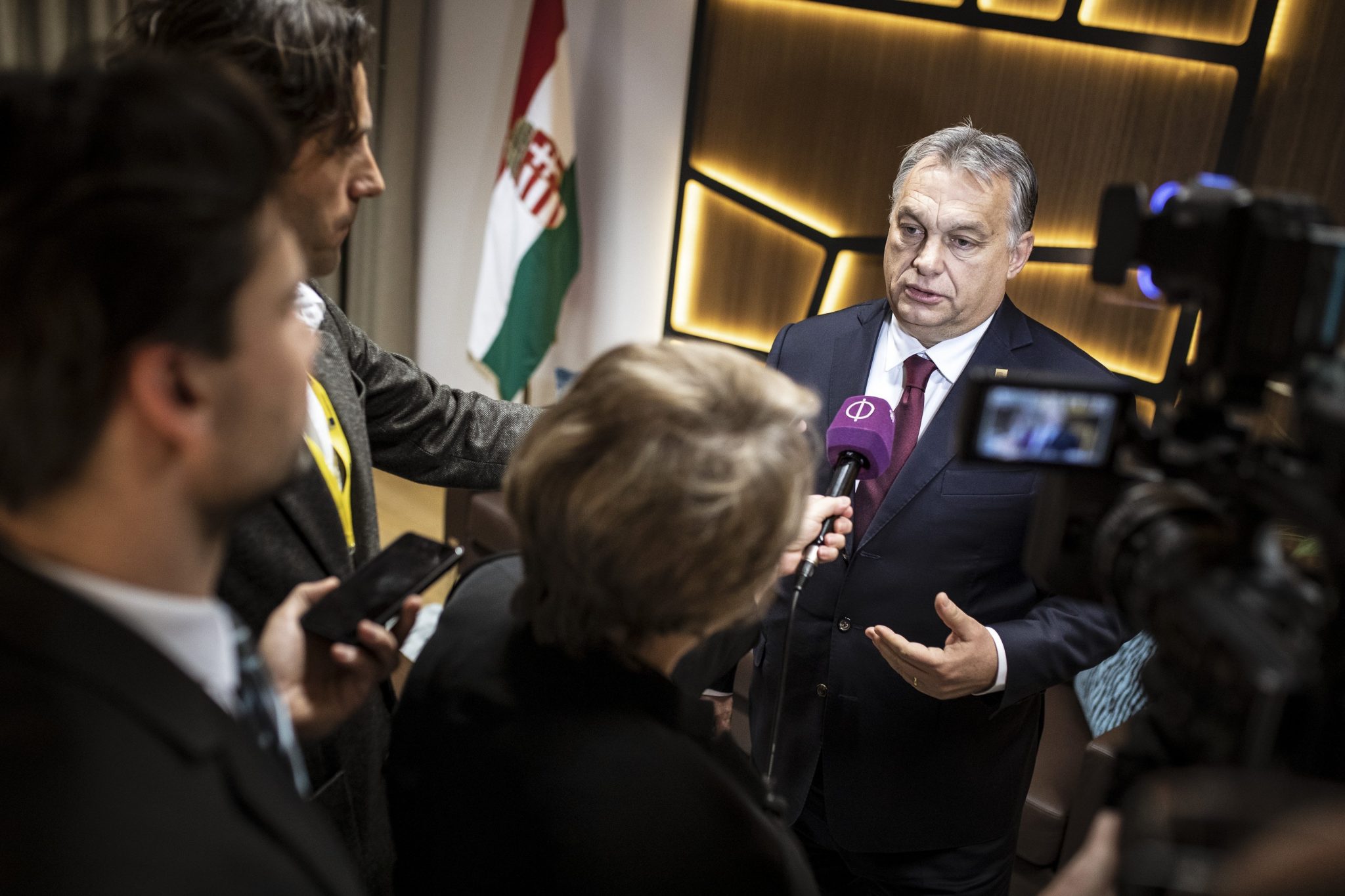
Dutch PM Rutte said that Hungary should leave the EU. The government continues to say that the focus of the law is non-discriminatory, meant for the protection of children.Continue reading

“Organizations funded by George Soros have launched a wide-ranging international attack on Hungary over the Child Protection Law,” begins one of the questions in the government’s upcoming periodic public survey, the ‘National Consultation’, which will include questions on migration and the economy, alongside what many see as a controversial anti-LGBT+ law. By now, all 14 questions have been revealed.
In recent days, a lot of details have emerged about the government’s latest National Consultation, launching this week. It contains fourteen questions covering a variety of issues, including the minimum wage, the moratorium on loan payments, a personal income tax rebate for low-earning parents, migration, and taxes.
A picture posted on Tuesday on the government’s Facebook page revealed the 9th question of the upcoming public survey. It concerns the Orbán government’s controversial child protection law, which generated an international outcry, as many deemed it discriminatory towards the LGBT+ community.
The question is as follows:
“Organizations funded by George Soros have launched a wide-ranging international attack on Hungary over the Child Protection Law. This law prohibits sexual propaganda directed at children in kindergartens, schools and in media accessible to children,” the lead-up to the question reads.
Respondents can express their opinion on whether the law is correct in restricting “sexual propaganda aimed at children”; or whether it is unnecessary to ban it because it “does not pose a threat”.
Although Gergely Gulyás, the prime minister’s chief of staff, said last week that there would be a question on whether the sexual education of children is the exclusive responsibility of parents, the actual question mixed with George Soros and the “wide-ranging international attack” is rather new.
It was Viktor Orbán who announced at a press briefing early last month that the government will be launching its next periodic public survey called ‘National Consultation’ on reopening and strengthening the economy.
Since then all 14 questions have been revealed.
In the questionnaire, the public is asked whether Hungary should be strengthened to meet the challenges of the post-pandemic era. It also asks if the minimum wage should be raised to 200,000 forints (EUR 575) per month so that not just companies but the Hungarian people can enjoy the benefits of economic growth.
The next question concerns granting constitutional protection to family support, pensions and low labor taxes to prevent any future governments from depriving the public of them in times of crisis.
The government asks the public if it should strive for Hungary to have the lowest taxes on labor in Europe. It also asks for public support for its planned measure allowing parents who earn below the average income to reclaim their 2021 personal income tax in 2022, if Hungary’s growth rate exceeds 5.5 percent in 2021.
The public is asked if the moratorium on loan repayments should be extended from the current deadline of September to July 2022 for families and businesses in trouble.
The next question concerns Brussels’ plans to launch procedures against Hungary and “impose its will on the Hungarian people”. The government asks if Hungary should accept the challenge or yield to pressure.
The survey is meant to gauge public response to the climate tax Brussels has proposed levying on Hungarian families’ flats and vehicles to finance the costs of reducing pollution caused by multinational companies and tackling climate change.
The questionnaire then addresses the already mentioned new Child Protection Law which triggered a massive international protest.
The National Consultation survey asks people whether Hungary should stand against illegal migration into Europe or yield to the pressure of “Soros-backed organizations”.
The public is also asked if those arriving from pandemic-hit countries should only be allowed to enter Hungary’s territory if they hold a valid health visa.
Another question asks whether the plan in Brussels for the mandatory resettlement of migrants should be allowed to go forward in post-pandemic years.
The survey also gauges people’s opinion on the government’s proposal to put a hold on migration to Europe for a period of two years after the pandemic.
Voters have until August 25 to return the questionnaire.
Featured photo illustration via Pixabay